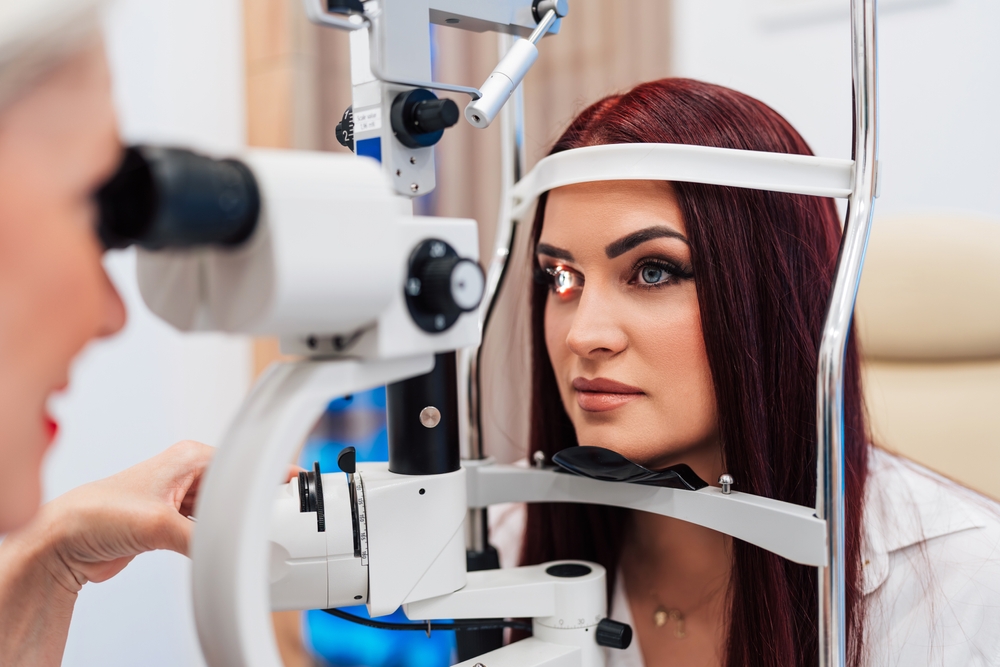LASIK has helped millions of people worldwide enjoy clear vision, free of the hassle and inconvenience of glasses and contact lenses. However, before undergoing LASIK, you must determine whether the procedure is right for you.
Certain factors like your age, medical history, and prescription can affect your LASIK candidacy and disqualify you from the procedure. Keep reading to learn more about 10 factors that may mean you are a candidate for LASIK.
What is LASIK?

LASIK is a vision correction procedure that uses specialized lasers to correct refractive errors like nearsightedness, farsightedness, and astigmatism. Refractive errors occur when the eye is too short or too long or the cornea is not shaped correctly.
During the LASIK procedure, your surgeon creates a small flap in the cornea with a femtosecond laser, and reshapes the underlying tissue with an excimer laser to improve your vision. LASIK has an incredibly high satisfaction rate of 96%, with the majority of patients achieving complete visual freedom from glasses and contacts.
Before your LASIK procedure, you will need to attend a consultation with your eye doctor at Batra Vision Medical Group to determine your candidacy. They will perform a thorough eye exam and ask questions about your visual goals, medical history, and daily lifestyle to decide whether LASIK could be right for you.
You may be suited for LASIK if:
1. You Have a Stable Prescription
The stability of your prescription is crucial in determining whether you are a good candidate for LASIK. The ideal candidate has a prescription that has stayed the same for one year or more.
A changing prescription could affect the lasting results of LASIK. If your prescription changes after the procedure, you might have to return to relying on glasses for clear vision.
2. You Are 18 Years or Older
You must be at least 18 to be considered as a candidate for LASIK. Before the age of 18, the rapid growth and hormonal changes that occur during adolescence can affect the stability of your vision.
3. You Are Not Pregnant or Nursing
Hormonal changes that can affect your prescription may also occur during pregnancy or nursing. Eye doctors recommend that you wait at least three months after you’ve finished nursing before considering LASIK.
4. Your Corneas Are Thick Enough
While it’s unlikely that you have ever thought about the thickness of your corneas, it can affect your candidacy for LASIK. LASIK involves creating a flap in your cornea with a specialized laser, meaning your corneas have to be thick enough to handle the procedure.
If your corneas are too thin, it can put you at risk for complications like corneal ectasia, which can cause permanent vision impairment. People with thin corneas should consider other vision-correcting procedures, like PRK, that do not involve creating a flap in the cornea.
Instead, PRK completely removes the epithelium or outer layer of the cornea and reshapes the tissue underneath, similar to LASIK. While this often means a longer recovery time, it can help patients who may not be good LASIK candidates achieve clear vision and freedom from glasses and contacts.

5. Your Refractive Errors Are Within a Specific Range
The prescription limits for LASIK are up to -12.00 diopters for nearsightedness, +6.00 diopters for farsightedness, and up to 6 diopters for astigmatism. LASIK may not be able to correct the vision of patients with stronger refractive errors, and undergoing the procedure could result in unwanted complications.
6. You Don’t Have Severe Dry Eye
If you have severe dry eye, LASIK may worsen your condition. It can also increase the risk of post-procedure complications, meaning you will need to get your dry eye under control before undergoing LASIK.
7. Your Eyes Are Healthy
A good candidate for LASIK is one who has healthy eyes. Certain eye conditions can disqualify you from LASIK candidacy.
If you have glaucoma, cataracts, keratoconus, or a retinal condition, LASIK can be risky. These conditions can negatively affect the outcome of the procedure and significantly increase the risk of complications.
8. You Are in Overall Good Health
Although LASIK is minimally invasive and is typically easy to recover from, overall good health is essential for any LASIK candidate. Chronic health conditions, like diabetes and autoimmune disorders, can affect the body’s ability to heal after LASIK.
9. You Have Realistic Expectations
Most LASIK patients achieve 20/20 vision or better and are able to reduce or completely eliminate the need for visual aids. However, individual results can vary as there are risks with any procedure.
A good candidate for LASIK has realistic expectations of its potential outcomes.
10. You Are Ready to Say Goodbye to Glasses and Contact Lenses

Along with the other factors listed above, a good LASIK candidate should be ready to enjoy life without the hassle and frustrations of glasses or contact lenses. Imagine how great you will feel when you have clear, crisp vision from the moment you open your eyes in the morning until you are ready to call it a night!
You’ll not only be able to avoid the daily hassles of visual aids, but you can experience all of life’s best moments with stunningly clear vision. Another benefit of LASIK is that with the expenses you’ll save on glasses, repairs, contact lenses, and cleaning equipment, the procedure ends up paying for itself over time.
Do you want to learn more about LASIK and discover whether you are a good candidate for the procedure? Schedule a LASIK consultation at Batra Vision Medical Group in San Leandro, CA, today!

 Follow Us!
Follow Us!